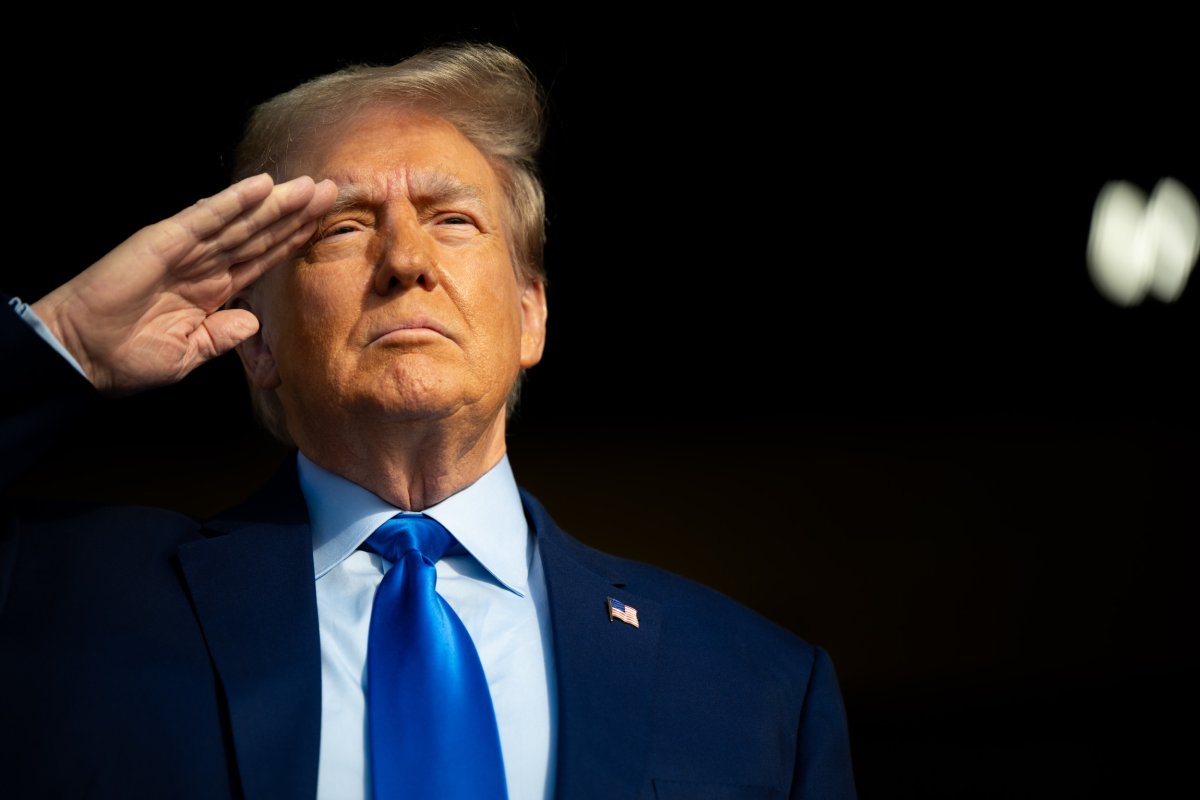-
Can Aileen Cannon Be Removed From Trump Case? - November 5, 2023
-
A portion of Mulholland Drive, damaged by mudslides in winter storms, reopens - May 26, 2024
-
‘Maybe You Don’t Want to Win’ - May 26, 2024
-
Donald Trump Putting Law Enforcement in Danger: Attorney - May 25, 2024
-
Avoid the waters of these 5 L.A. County beaches this holiday weekend, public health officials say - May 25, 2024
-
Bawdy Comedy ‘Anora’ Wins Palme d’Or at Cannes Film Festival - May 25, 2024
-
Map Shows Heat Wave Zone Spread Into Five New States - May 25, 2024
-
Azusa police arrest suspected slingshot-wielding vandal - May 25, 2024
-
Donald Trump Hammers Judge Ahead of Jury Instructions - May 25, 2024
-
Sometimes U.S. and U.K. Politics Seem in Lock Step. Not This Year. - May 25, 2024
Can Aileen Cannon Be Removed From Trump Case?
It would be extremely difficult to remove a Trump-appointed judge from former U.S. President Donald Trump’s federal criminal trial in Florida, legal experts have told Newsweek.
Prosecutors objected to Judge Aileen Cannon’s decision to delay the pre-trial schedule in the case where Trump is charged with mishandling classified documents recovered from his Mar-a-Lago estate in south Florida.
Cannon’s decision could significantly delay the trial, which is due to start in May.
Stephen Gillers, law professor at New York University, told Newsweek that Special Counsel Jack Smith would face major hurdles in efforts to remove Cannon, who was appointed a federal judge by the Trump administration.

Brandon Bell/Getty Images
“Will Cannon be removed? Smith has to go to the circuit to get a new judge and success in any such effort at this point seems highly improbable. Frankly, one might be forgiven for concluding that Cannon doesn’t want to try the case. If Trump wins, she won’t have to,” Gillers said.
“It is hard to understand what Cannon is thinking,” he added, saying that Cannon may be delaying the case to make room for the election-subversion case Trump faces in Washington D.C., which is due to begin in March, two months earlier.
“Is she worried about the [Washington] trial going on too long and hitting up against the present start date for her trial? If so, she should wait to see if that happens. She can then delay her start date later. Trials often take less time than the lawyers predict,” he said.
After lengthy wrangling between prosecutors and Trump’s lawyers about the handling of the classified documents at the core of the proceedings, Cannon designated the case “complex” under federal law, allowing greater time for trial preparation.
“Does she believe that the case is too complicated to try as soon as May, even though the lawyers have had months to prepare and will have six more months before May? That’s not credible,” Gillers said.
He said the Washington, D.C., election-subversion trial, which is being overseen by Judge Tanya Chutkan, “is much more complicated than the documents trial” and Chutkan has had less time to prepare than Cannon.
Prosecutors this week urged Cannon not to delay the case.
“The court really cannot let and should not let the D.C. trial drive the schedule here,” Department of Justice prosecutor Jay Bratt said, adding that Trump is trying to delay all of his criminal cases.
Stephen E. Smith, legal professor at Santa Clara University in California, told Newsweek that he “can’t imagine or even picture the procedure” by which Cannon might be removed. “The Chief Judge of the district is not going to reach into a case and reassign it just because they think mistakes are being made.”
“One of the parties could ask Judge Cannon to recuse, but I don’t think the government would make a request that’s an obvious loser,” Smith said, adding that a judicial misconduct complaint “would take forever, and would also lose,” as changes to trial scheduling can’t be considered misconduct. “Some sort of interlocutory appeal? The [Florida] 11th Circuit isn’t going to hear an appeal of a scheduling order. So yes—very unlikely to the point of wholly unlikely,” he said.
While Cannon has been criticized for delaying the schedule, she has had to face Trump lawyers arguing over the disclosure of more than 1 million pages of evidence.
There was also the added complexity of establishing secure rooms in which both prosecutors and defense lawyers can review the highly sensitive documents found at Mar-a-Lago.
The most sensitive information has to be couriered to the lawyers by “members of the intelligence community” before being taken away again after they have been viewed, according to prosecution documents submitted in the case.
The Trump lawyers also recently complained that prosecutors had not supplied them with ultra-secure laptops on which to draft court submissions that reference the contents of the classified documents.
Prosecutors have strongly contested this and told Cannon that the Trump legal team has been using the laptops for weeks. The laptops must have special security features to ensure nobody hacks into them and tries to steal classified information.
Trump pleaded not guilty in June to 37 criminal counts related to his handling of classified materials, after prosecutors alleged he repeatedly refused to return hundreds of documents containing classified information. In August, Trump maintained his innocence in three additional felony charges in the classified-documents case.
The same month, he pleaded not guilty to charges of illegally attempting to overturn the results of the 2020 presidential election.
Newsweek sought email comment from the federal courts in south Florida, where Judge Cannon presides, and from Donald Trump’s legal team.
Uncommon Knowledge
Newsweek is committed to challenging conventional wisdom and finding connections in the search for common ground.
Newsweek is committed to challenging conventional wisdom and finding connections in the search for common ground.
Source link
































